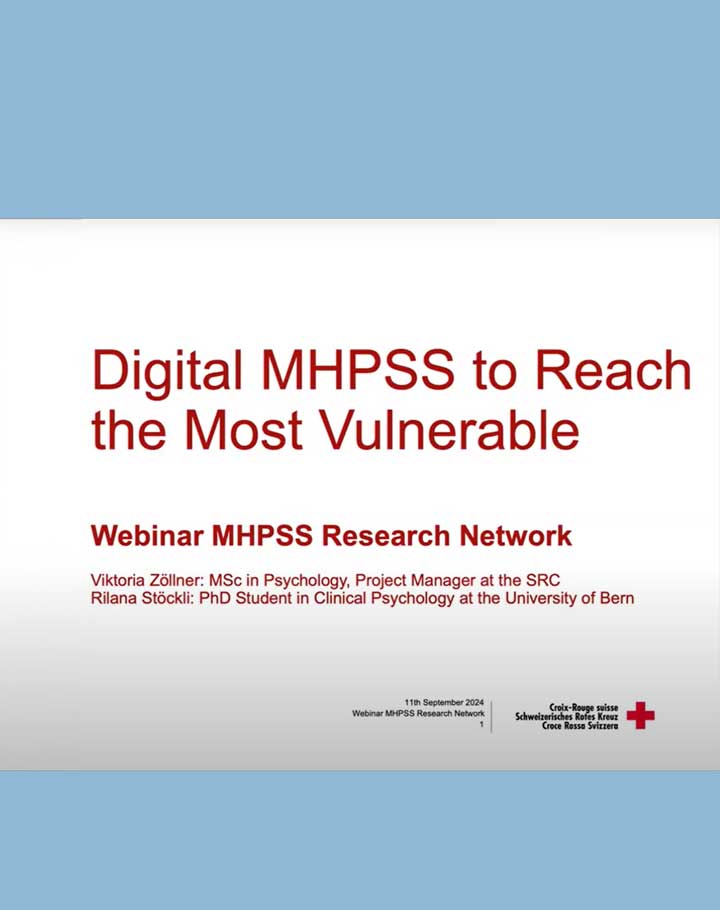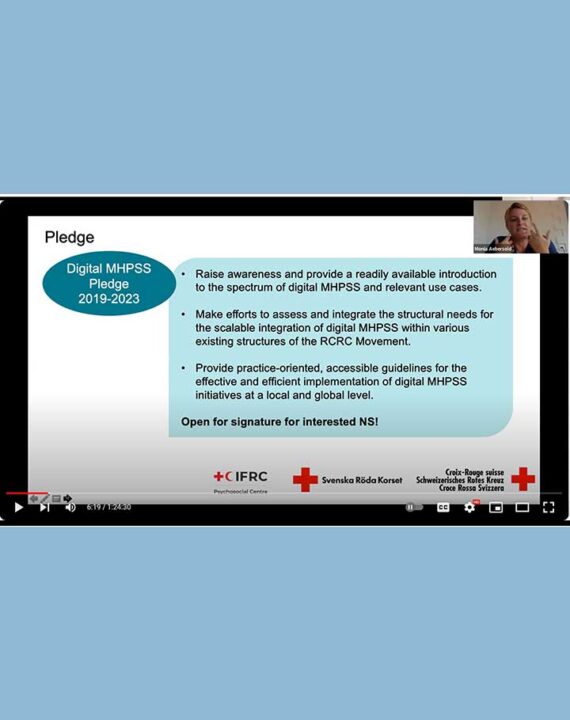There is an enormous gap in human resources for mental health and psychosocial support at a global level. The ramifications of this gap are magnified in situations of armed conflict, natural disasters and other emergencies, where needs intensify and healthcare systems are overwhelmed. Accordingly, there is a need for innovative and promising MHPSS approaches that can reach more people affected in the most cost-effective way possible. In contexts where resources are scarce, access is limited, and gaps in service provision are high, digital psychological and psychosocial support services open up ways of connecting with more people in need. They provide a scalable and resource-efficient extension of traditional approaches to mental health care and psychosocial support.
This webinar provides an overview of the current state of research on digital MHPSS, discusses challenges with the development and the implementation of a scalable technology-empowered service and gives insights into the results of a very recent RCT on the acceptance and effectiveness of the Sui SRK App, a digital psychosocial intervention for refugees in Switzerland, developed and implemented by the Swiss Red Cross.
The presenters are:
Viktoria Zöllner, a Project Manager at the Swiss Red Cross for digital MHPSS, holding a master’s in psychology. She is co-leading the SRC project ‘Digital psychological and psychosocial support for refugees in Switzerland’ as part of which the Sui SRK app was developed. Rilana Stöckli, a PhD student of psychology at the University of Bern, was leading the research project concerning the process of cultural adaptation and conducting the RCT on the acceptance and effectiveness of the Sui SRK App.





